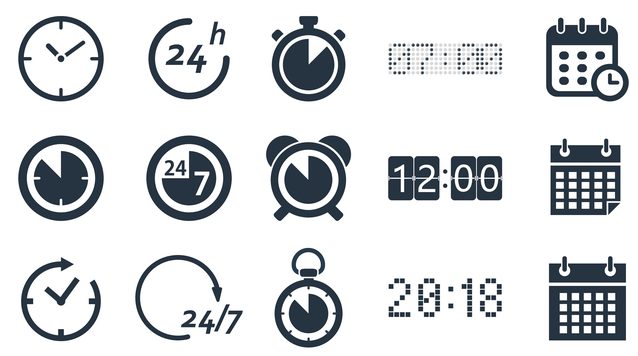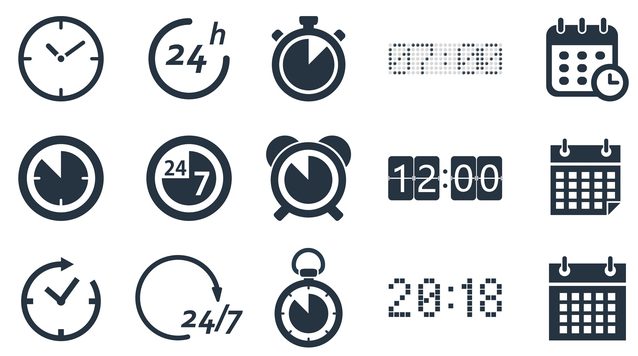They’re terms we all use every day—so we thought we’d look into why people talk about the “time” and why they look it up on “clocks” and watches.”
Time
Proto-Indo-European is the common ancestral language of most European languages, and it had a word dimon, which meant “to divide.” Dimon to a form of time in Latin isn’t a large jump, nor is it much of a leap to use a word that means divide to describe the quantification of the passage of existence. Time is also closely related to “tide” from Old English. The rising and falling of the seas each day is a way to mark the passage of time, of course, and the suffix “tide” is still used in modern English in this manner, such as “yuletide.”
Clock
We’ve been calling a timepiece a clock for a while, as far back as 1350. “Clock” was cloke in Middle English, adopted directly from the Dutch word clocke, which meant “bell,” because churches would denote the passage of an hour with the ringing of a bell. (That, in turn comes from the Latin clocca, which also means “bell.”
Watch
Some people still call it a wristwatch, but you probably just call that clock on your wrist a watch. Is it called that because it keeps “watch” of the time? Pretty much, yes. Print references first showed up in the 1590s, describing an alarm bell rigged up to a clock. At the appointed time set by the user, the bell would ring—the gadget kept “watch” of the time so the person didn’t have to. So that’s an early example of an alarm clock, but it’s also the origin of wristwatch, because once tiny clocks that could be worn came about much later, the word “watch” to describe a timepiece was well in use in the English language.
Chronology
In Ancient Greece, and in ancient Greek mythology, earthly concepts were expressed and understood as personified figures—Thanatos, for example was death in humanoid form, an early version of the “Grim Reaper.” Similarly, a figure named Chronos represented time. The root “chrono” is still felt in English to express time-type words, such as chronology or chronic, for example.









